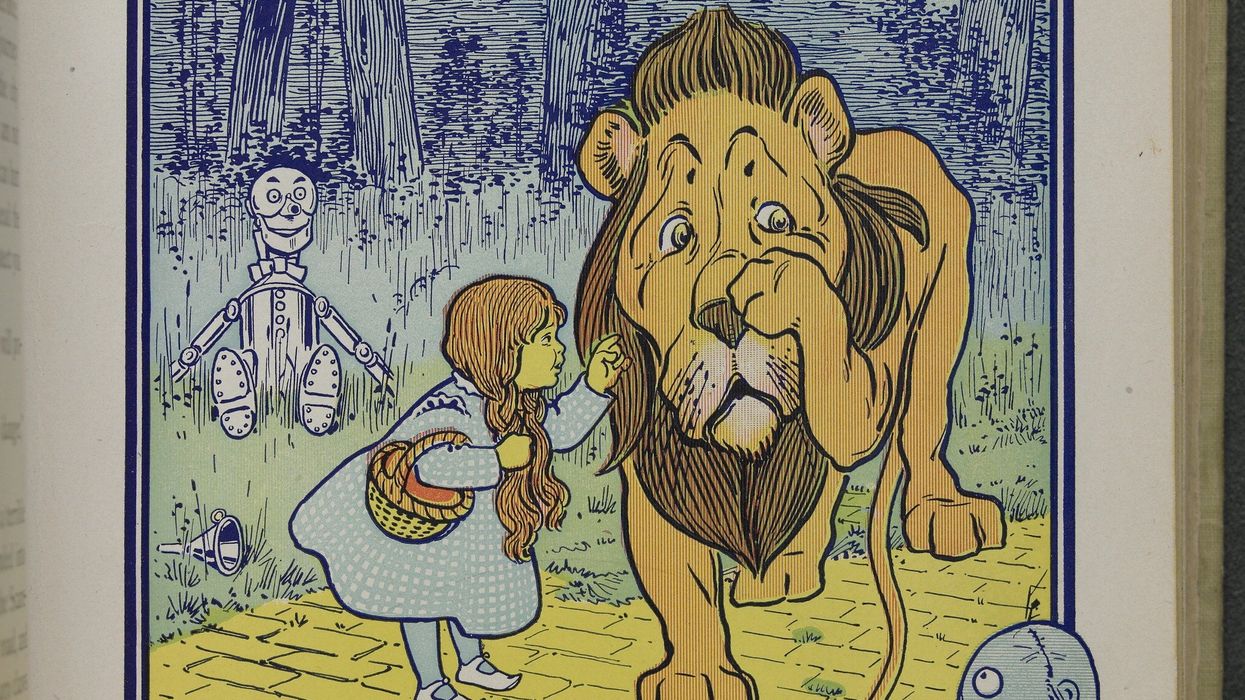Lockard is an Iowa resident who regularly contributes to regional newspapers and periodicals. She is working on the second of a four-book fictional series based on Jane Austen’s “Pride and Prejudice."
In this world of froth and bubble,
Two things stand as stone.
Kindness in another’s trouble,
Courage in our own
This verse by Adam Lindsay Gordon emphasizes the enduring value of kindness and the importance in having courage as we confront the world.
There is certainly plenty to make us worry, and most of us do. Careening modern problems barrage us every day: Artificial intelligence threatening our jobs and our very humanity, climate change wreaking havoc on our planet, terrible wars abroad, dissension at home, increased political polarization. Our consistent ingestion of news reinforcing our own viewpoint does not help, and all amidst the “froth and bubble” of social media and breaking news. Too much is, by definition, too much.
But we do not have to eat what is served, and are wise not to. Instead, there is a timeless recipe, a not-so-secret sauce to make the world around us and within us more palatable. It changes adversity to challenge, obstacles to opportunities. Its ingredients, only two, are kindness and courage.
Much has been written about kindness in the past years; still, it is an elusive practice. In a country where a majority of us enjoy the blessings' of the modern age, families are broken, neighbors and friends with divergent viewpoints dismissed, walls instead of bridges built. Kindness changes that: The very act of being kind begets kindness, understanding, reconciliation. Kindness is essentially an expression of joy in living well with others.
Can we not empathize with both the policeman and the young man (excluding of course, brutal criminal acts)? Cannot we sympathize with both the desperate immigrant and the citizen who feels his city is being invaded? Answers do not have to be either/or. The crux of any problem requires first understanding and then the solution: conscientious leadership, which calls for both kindness and courage.
With courage we can embrace challenges, and can throw back even harder what life throws at us. It takes courage to nourish hope in a world seemingly hellbent on destroying itself, pecking away at our very souls. But, as the Cowardly Lion found in the “Wizard of Oz,” simply wanting to have courage is courageous. Courage, too, begets courage.
True courage is like a kite; a contrary wind raises it higher. (J. Petit-Senn)
There are, of course, issues which cannot be compromised and people to whom kindness is seen as weakness and courage to stand against tyranny is necessary. In our past and now, courageous people voluntarily carried out controversial and dangerous acts, fought to uphold justice, stood up to unfair and discriminatory practices. Often, and too often well beyond the time they lived, we recognized their courage. We called them heroes.
Kindness and courage are essential traits in a hero. One enhances the other. Writing of a character who suffered many trials in “Persuasion,” Jane Austen called this “combo platter” the “choicest gift of Heaven.” Why? Because one’s outlook changes everything.
…but here was something more; here was that elasticity of mind, that disposition to be comforted, that power of turning readily from evil to good, and of finding employment which carried her out of herself, which was from nature alone. It was the choicest gift of Heaven.
Indeed, it was. We can all possess this “choicest gift” through the transformative potential of kindness and courage. Such “superpowers” convert a bowl of gray mush to a smorgasbord, plain water to sparkling wine. They cost nothing, but are more precious than gold, or, in our modern age, maybe lithium.
“We may scatter the seeds of courage and kindness around us at so little expense.” (Bentham)
Because, ultimately, despite our circumstances, it is we who choose how we will live. This must be both the most frightening and the most exhilarating concept imaginable.
So, how to make a positive difference in our own life and in the lives of others? It comes down to the age-old question: “How then shall we live?”
Bestow kindness upon others? Have courage ourselves? We then change the world — our own, and the bigger one we live in.




















